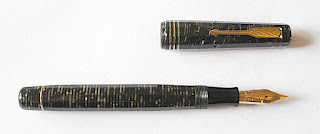Tuesday we spent, once more, in Birmingham, but this time
our visit was more focused, on the Civil Rights struggle and this took us to
the Birmingham Civil Rights Institute where we began with one of three civil
rights walks, that tracing the route of marchers to the downtown business
district in 1963. After that we visited Kelly Ingram Park, one of the sites
from where the marches and protests were staged and where today there is an
incredibly moving statue that memorializes the four children who were killed at
the Sixteenth Street Baptist Church, just across the street, on September 15,
1963.
 |
| Birmingham Civil Rights Institute, the third of our Civil Rights museums |
 |
| Three walking tours commemorate the struggle. The first station |
 |
| The final station of the "retail" march downtown |
|
 |
| The Sixteenth Street Baptist Church |
 |
| An
incredibly moving piece of sculpture or the four children killed. They
must be named as they are on the bench and in our hearts forever: Addie Mae Collins, Cynthia Wesley, Carole Robertson and Carol Denise McNair |
|
 |
| Can't read the plaque because of the sun and shadow, but this is where the conspirators planted the bomb, designed to blow up the Sunday school. As outrageous as the act itself is the fact that the Klansmen were not all punished until 2002 and one more may never be brought to justice. |
From there we went into the Institute and experienced
another superb museum, one that gave us a better understanding of
not just the movement and the struggle but of this still-troubled city.
And that may be enough
to say, except that both of us found our visit to Birmingham unsettling.
The city begun in 1873 as an avatar of the “New South” ended
up as the most segregated city in America by the 1950s and today seems a shell.
I say this not to offend anyone but with a sense of regret. In many ways
Birmingham reflects the failure of American to realize Dr. King’s Dream.













Comments